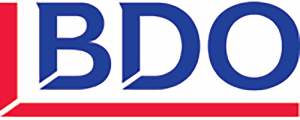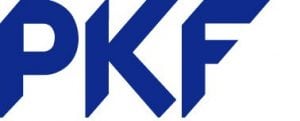What do BDO do?
BDO are a large professional services firm that operate in a wide variety of sectors and specialise in offering Audit, Tax and Business Consultancy services.
How did I get my job at BDO?
I applied for a summer internship in the tax department towards the end of my second year at university. It involved all the usual aspects, including online numerical and verbal reasoning tests, and eventually a final interview with a partner. At the end of the internship I was offered a full time graduate position for when I finished my degree.
What is a typical day like for you?
Here are just a few of the things I do on a daily basis:
- Preparing draft tax computations for inclusion in companies’ accounts.
- Departmental meetings to discuss topical issues such as proposed changes in legislation and possible improvements to our service.
- Drafting letters to clients and HMRC outlining tax calculations and responding to enquiries.
- Conference calls with our overseas offices to discuss issues for clients with overseas interests.
- Technical research in particular areas, for example research and development and patent acquisitions.
- Time-off to study for my exams.
What do I enjoy most about my job?
The variety of experience it is possible to obtain on a daily basis, for example I have had the opportunity to work on large corporate tax projects to more small ad hoc personal tax projects.
The wide range of technical issues, as well as constant changes in legislation, provides a challenging environment that means I am constantly learning.
I work within a good team. We have a great team in which everyone’s opinion is considered, as well being both friendly and sociable, making it an enjoyable department to work in.
What are the most stressful parts of the job?
Studying for the ACA has been the most stressful part of the job. The exams require a lot of work and I have found adjusting to time in the office after a particularly difficult period at college to be challenging.
However, having a peer group of other tax assistants that started with me, as well as having good support from my department and others within the firm has helped me to adapt to this.
What would you like to achieve in the future?
My main aim for the time being is to complete my ACA qualification, once this is complete, I have the opportunity to study for my CTA exams. Although they’re not compulsory, I think I will take them, as they could really boost my career.
Ultimately, I would like to consolidate my technical knowledge and eventually specialise in a particular area of tax.
Do you have any advice for anyone wanting to get into the industry?
Have an open mind. It’s very difficult to have a complete idea of what career path you want to follow; when you start a job it may not be what you expected, or you may discover other areas that you were unsure of before that now appeal to you.
I would recommend giving careful thought to the qualification you will be studying for, ensuring that you are fully prepared to put the right amount of work in order to pass all of your exams.
What was the interview process like?
The interview process was daunting. However, I was prepared for what to expect – for example the initial application stage led to computer based tests and eventually to an interview and assessment centre.
Any advice for the interview process?
- Be open and honest. Relate to your own personal experiences rather than trying to say what you think people want to hear.
- Don’t be put off by the daunting process, it will be a worthwhile experience whether you are successful in getting the job or not.
- Research the company you are applying for. This will help you understand the role you are looking to undertake a bit more.
What challenges have you come across and how did you overcome these?
I have found it particularly difficult in finding a work/study balance. Working for a professional services firm there are a lot of demands on your time, so it can be difficult to find a good balance between time spent in the office and studying at home.
As I have become more experienced I have found it easier to manage my time, enabling me to be better prepared for each exam.
What ‘soft-skills’ have you found useful?
- Good communication skills are very useful, particularly as it is important to ensure good coordination with other departments, as well as helping me interact with clients.
- Good time management skills are particularly important. This is vital in both working to tight deadlines and when studying for exams.
- A positive attitude is also useful as it has helped me demonstrate that I am eager to learn and gain experience, particularly in such a technical industry.





